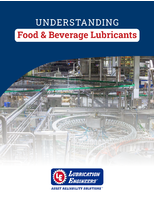Data shows U.S. manufacturing economy faces risks.
Press Release Summary:
According to The Facts About Modern Manufacturing handbook, manufacturing continues to play critical role in U.S. economy but is challenged by increasing costs including corporate taxes, health care and pensions, regulations, energy, and tort litigation. Book points out that U.S. does not keep pace with falling corporate tax rates, high health care costs hamstring competitiveness, regulatory compliance costs are large and growing, and energy is critical to industrial sector.
Original Press Release:
New Data Show U.S. World's Largest Mfg Economy But Faces Many Risks
Rising Costs Imposed on Manufacturers Threaten Job Growth, Competitiveness
WASHINGTON, D.C., Oct. 6, 2009 - Despite the worst economic downturn in decades, manufacturing continues to play a critical role in the U.S. economy but is challenged by increasing costs including corporate taxes, health care and pensions, regulations, energy and tort litigation, according to The Facts About Modern Manufacturing released today. The new Facts handbook was produced in partnership by The Manufacturing Institute, the Manufacturers Alliance/MAPI and the U.S. Department of Commerce.
"The facts clearly illustrate that manufacturing is central to America's economic future," said Emily Stover DeRocco, president, The Manufacturing Institute. "The United States has the largest manufacturing economy in the world, producing $1.6 trillion in goods annually. America's global market share of manufacturing has held steady at around 22 percent for 30 years. Productivity growth is higher in manufacturing than in other sectors, holding down inflation and contributing to a higher standard of living. And one in six U.S. jobs is in or directly tied to manufacturing, which still pays premium wages and benefits.
"Manufacturing continues to generate more economic activity per dollar of production than any other business sector in the country. And manufacturing drives innovation by conducting nearly half of all research and development and creating the bulk of technology in the nation," she added.
"Rising costs, however, are hampering our manufacturers' competitiveness in a global, interconnected marketplace. Non-production costs add almost 18 percent to U.S. manufacturers' costs relative to our major trading partners," DeRocco said.
DeRocco also noted that the United States "is not equipping American students and workers with the right skills needed to compete in the modern global manufacturing economy. We are seeing our global market share eroded, even in high technology areas where we have been dominant. And the trade gap is widening for manufacturers in the United States, indicating a need for strategies to increase exports, promote free trade and level the playing field."
"In order to recover from the deepest manufacturing recession since the 1930s, it is vital to adopt policies promoting a sound domestic environment for this sector," said Thomas J. Duesterberg, president and chief executive officer of the Manufacturers Alliance/MAPI. "The Facts shows how new tax, regulatory, energy and trade policies affecting manufacturing will be crucial in the next few years."
The Facts book points out several major cost drivers that are hurting U.S. manufacturing competitiveness, investment and job creation:
o U.S. Does Not Keep Pace with Falling Corporate Tax Rates: The United States now has the second highest corporate tax rate among our major trading partners, trailing only slightly behind Japan. U.S. corporate tax rates have been essentially unchanged for the past two decades, while all of our major competitors have been lowering theirs.
o High Health Care Costs Hamstring Competitiveness: The United States has the most expensive health care in the world relative to the size of its economy. Manufacturers want to continue offering flexible, generous health benefits without increasing the cost of doing business.
o Regulatory Compliance Costs are Large and Growing: Manufacturers spend an estimated $162 billion annually to comply with economic, environmental and workplace safety regulations as well as tax compliance - equivalent to a 12- percent value added tax. As an example, U.S. industry is faced with the highest pollution abatement costs compared to its major trading partners - even higher than the so-called "green economies" of Western Europe.
o Energy is Critical to the Industrial Sector: U.S. manufacturers consume roughly one-third of our nation's available supplies. Most of the manufacturing sector's energy comes from fossil fuels, with natural gas representing the single largest energy source. The rise in fossil fuel prices since 2002 has raised production costs as well as concerns about the availability of secure, reliable and affordable energy supplies.
"All of these challenges underscore how manufacturing in the United States is at a crossroads, and the policy choices made today will shape the future of manufacturing in our country. The facts tell us that manufacturing is essential to a robust economy and high living standards. Addressing the underlying pressures that make it difficult to manufacture in the United States and making our economy more competitive should be a top priority for policymakers as the nation struggles to recover from the recession and create good jobs," DeRocco concluded.
The 8th edition of the Facts book spotlights the latest U.S. government statistics, economic analysis and case studies about manufacturing in America. This comprehensive resource is available at http://www.nam.org/facts.
The Manufacturing Institute is a non-partisan 501(c) (3) affiliate of the National Association of Manufacturers focused on delivering leading-edge information and services to the nation's manufacturers through its Center for the American Workforce and its National Center for Manufacturing Research. Visit www.nam.org/institute.
The Manufacturers Alliance/MAPI, established 1933, is a nonprofit organization engaged in economic and policy research, continuing professional education, and allied activities. The Alliance's corporate membership includes U.S.-based and international companies in manufacturing and related business services. Visit www.mapi.net.




